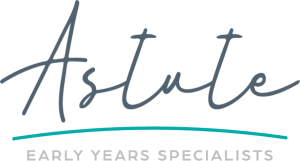There has been a lot of discussion lately on just what is meaningful documentation. Now, I could write a book on this, but seeing as you have much better things to do with your time, I’ll give the low-down.
The quick (& not so easy) steps to ‘meaningful’ documentation
Step 1 – Determine *why* you want to document.
- Do you want to document to share children’s experiences with families?
- Do you want to document to reflect upon your own teaching?
- Do you want to document to examine deeply the role you play in children’s learning?
- To what happens when *you* join the play?
- To how children’s back and forth conversation changes play?
- Or, just because you have to?
So, first step, determine *why* you want to document. Then, head to Step 2.
Step 2 – Determine who is your audience. This will give you your story arc, language and purpose.
Hint: the *first* audience for any of your documentation should be you, the reflective educator, or children, reflecting with and alongside them. Then, if you want to, you can share with others…
Step 3 – We know that children are learning All. Of. The. Time. But, what is learning? What does it look like? What is learning to you? Not sure, then head to #4.
Step 4 – Observe.
Observe some more.
Then, observe just a little bit more.
Stop moving. And thinking.
Observe deeply children’s play.
Notice. It.
Notice the language they choose to use. Notice the way they move their body in space. Notice what changes the play from this direction to that. Notice what makes them wonder. Notice, what makes you wonder about their wonder. That’s the nub of your enquiry – try and capture their thinking and theorising – this is where the good documentation lies (and the key to successful teaching by the way!)
Step 5 – Write about it.
Yes, we can document ‘Jonnie picked up the pencil with his right hand, using a pincer grip and proceeded to draw two almost straight lines (see, pictures included).’
But really? Yawn
Mum and dad know Jonnie can do this.
You know Jonnie can do this.
Jonnie knows he can do this, because he has been practicing every day for the last week.
So *why* are you documenting it? *Why* is it so important that it takes you away from children where you spend 5 important, valuable minutes writing it down? And if you do this 10 times a week, that’s 50minutes spent writing…. yawns….
BUT! If you spent 10 minutes *deeply observing* Jonnie every day for the last week, your story might be more ‘meaningful’, for example:
‘Jonnie, I have watched you over the last week trying so hard to use the lead pencil and to control your lines. I see the concentration on your face, your gaze never strays from the paper, and you are not easily interrupted by your friends when they wander over. I see you flexing your fingers as they get to know how to grip the pencil just right, the strength it requires, and the angle you need the paper to be to succeed. Your perseverance and determination to master this pencil and to draw a straight line is truly impressive. I remember what that is like – I did the same at drawing class, trying so hard to get my lines in the right place, practicing over and over again.
It’s easy to overlook the effort required in this. Learning to hold a pencil and to ‘write’ is something we all move through – but to recognise the actual skill and perseverance involved – you are reminding me to slow down, and not to miss this important stage in your development. It’s more than just ‘learning to write’. Its developing dispositions such as concentration, persistence, practice, determination, feeling OK with making mistakes and trying again…that’s what is important here. ‘
This story, in the first instance, is for me, the educator, and for Jonnie. With a little tweaking, it can be for mum and dad. I want Jonnie to know that I *noticed* his effort. And, I want to think deeply about this to determine what *may* come next for Jonnie.
(Although, there doesn’t have to be a ‘What Next?’ Stories & observations can be written because they are beautiful. Because they show the power and potential and the laughter and joy of childhood. Not just as a lever to ‘What’s Next.’)
Step 6 – Share your story with Jonnie…what does he think about it? Has he recognised his determination? His perseverance? His capacity to persist?
Meaningful documentation starts with what you notice. And *why* you notice it.
Then, it depends on what you do about it… You can share the story verbally with colleagues and/or families. You can reflect upon it at your team meeting, analysing what struck you about the moment and why. Talk about what the moment held and meant for you. And if there is the nub of a longer potential in here to grow the child’s capacity. This would not be providing Jonnie with more pencils or different paper, but a focus on the dispositions he showed. Perseverance, concentration, control and determination. Is there something in that?
Now that would be meaningful!
